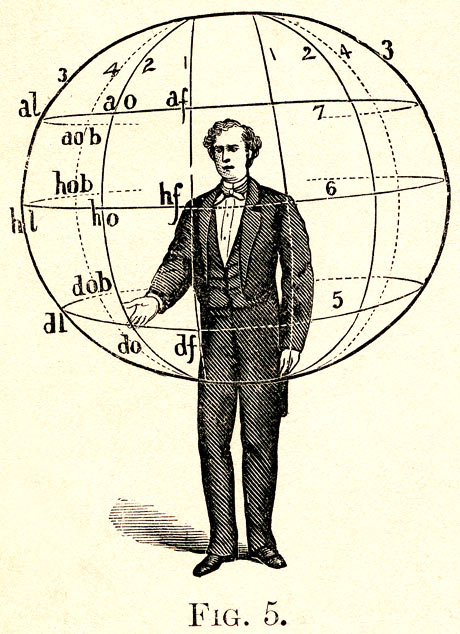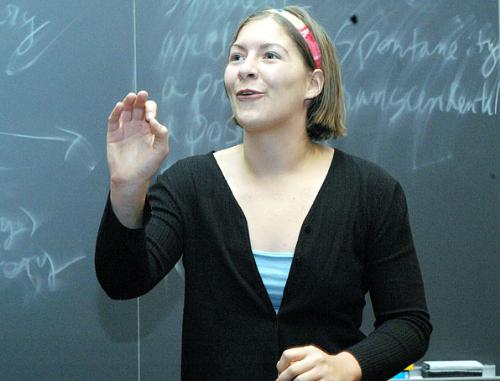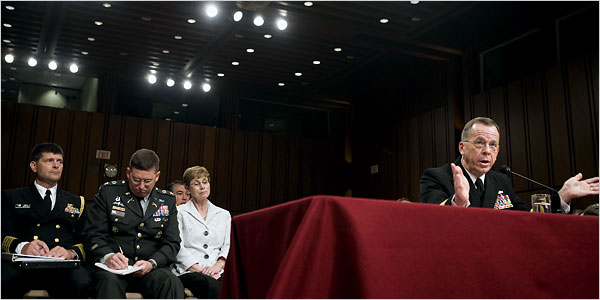A long century ago some of the self-help gurus of the day were teachers of elocution, the art of gestural inflection in public speaking. Today it is easy to ridicule their elaborate systems for training speakers to communicate emotions through minutely choreographed patterns of hand movements. Note, for example, this diagram from Albert Bacon’s Manual of Gesture:
Bacon’s system would describe the gesture in this pose as “right hand supine descending oblique.” It is one of 88 basic gestures, each of which had a preparation, execution, and return, and all of which could be used in combination with a large number of foot positions and facial expressions, and with varying degrees of energy, and sometimes including additional gestures of the hands such as a clenched fist. The thousands of possible combinations were supposed to communicate many different emotions or attitudes; the book helpfully includes a list of common sentiments and their accompanying gestures (e.g., “Abandonment, utter”: both hands descending lateral). Foucault would have been beside himself.
So, who would do that today? Well, nobody and everybody. Whether schooled or not, we talk with our hands. And some are even schooled, though not at an institution you’d care to attend. Here, for example, is a snapshot of a competitor for the Boylston Prize for Elocution at Harvard:
There even are elocutionary moments outside the ivory tower, but, again, not in reputable settings:
John and I have started to collect images of hands being used for communicative effect, and there are a lot of them. More to the point, we believe that, although elocution is rightly no longer an important part of public speech, the elocutionary function of using gestures to communicate has been transferred from one public art to another, that is, from oratory to photojournalism. There are several dimensions to gestural photography, including recording elocutionary acts such as the images above, to relaying stock gestures characterizing the political class, to creating its own iconography of photographically dismembered hands and feet. We’ll be showing examples of each of these variations in later posts. Criticisms and other suggestions are welcome. We always can use a helping hand.
Photographs by Jose L.A. Camacho for the Harvard Crimson, August 9, 2004, and Brendan Smialowski for The New York Times, August 1, 2007.



[…] Recently I suggested that photojournalism includes an iconography of body parts that are used to communicate emotions, attitudes, relationships, and the other elements of political experience. Coverage of the celebration of the 54th anniversary of the Cuban revolution is a case in point, and also a brief lesson in the politics of photo selection. Let’s start with this photograph of Raul Castro speaking at the ceremony: […]